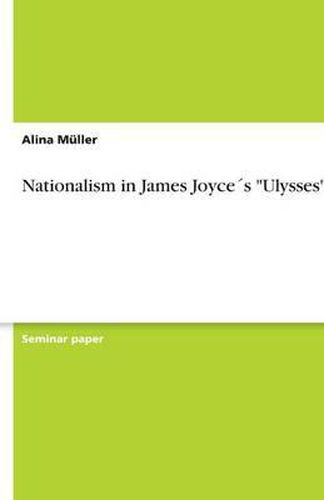Seminar paper from the year 2011 in the subject English - Literature, Works, grade: 1,7, Johannes Gutenberg University Mainz, language: English, abstract: The beginning of the twentieth century was accompanied by omnifarious events changing the worldview of people: various teachings, scientific progress, First World War. There is no doubt that all these factors had their impact on literature. The relationship between writer and reader, look inside oneself, own consciousness was reflected on writers such as James Joyce. Irish author, worried about British-Irish conflict and engaged in nationalist question, made the Ulysses novel partially nationalistic in its intention. There is no doubt that in Ulysses, Joyce criticizes the utopian and cultural past of Ireland and ridicules any signs of English chauvinism and Anti- Semitism. At the same time, the author shows his hostility towards the Irish cultural nationalism, and the Catholic and Protestant ideologies. He also revises the concept of -Nation- which has been officially approved at the beginning of nineteenth century. The question remains which themes associated with nationalism does Joyce introduce in the novel. How does he present the characters and relationships between them? These topics are important to observe in order to reveal Joyces perception of the history. Further, how does he try to influence the reader by using methods referring to narrative composition, such as extraordinary style and language, allusions, literary devices, narrative structure? What is the authors intention and meaning underlying the narrative composition? These subjects are necessary to observe to reveal how Joyce shows his struggle against nationalism. The -Telemachus- and -Nestor- chapters are worth considering, because they most significantly present cultural and historical memories of the author; whereas the -Aeolus- and -Cyclops- chapters considerably deal with nationalistic critique. A more precise understanding of th





